Lavie Tidhar was guest of honor on the last Swecon, Amazing Stories took the opportunity to interview him.
Lavie Tidhar has been raised in a kibbutz in Israel, but since he was a teenager, has traveled a lot. He now lives in the United Kingdom with his wife, but has lived in South Africa, Laos and Vanuatu.
He has won the Clarke-Bradbury competition in 2003 with ‘‘Temporal Spiders, Spatial Webs’’, and he was a Sturgeon Award finalist in 2010 with ‘‘The Night Train’’. His novel “Osama” won the World Fantasy Award, and he was a finalist for the Campbell Memorial Award, British Science Fiction Award, and a Kitschie (2011). He also won the British Fantasy Award with “Gorel and the Pot-Bellied God” (2011).
Besides writing Lavie Tidhar advocates bringing international SF to a wider audience, and has edited The Apex Book of World SF (2009) and The Apex Book of World SF 2 (2012); he was also editor-in-chief of the World SF Blog, and in 2010 won the Last Drink Bird Head Award, in 2011 was a finalist for a World Fantasy Award and finally won a BSFA Award for non-fiction (2012) for his work in the blog.
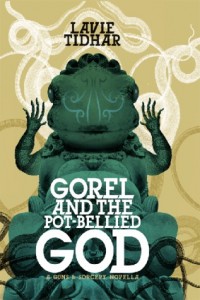 Tanya Tynjälä for AS -Could you talk about your experience writing in English but not being a native English speaker?
Tanya Tynjälä for AS -Could you talk about your experience writing in English but not being a native English speaker?
Lavie Tidhar– Sometimes it can be a little difficult. In the big English-language countries they sort of assume because they speak it as a first language, that makes them some kind of authority. But there are whole different kinds of English. And I feel for example quite attracted by the fact that I can construct sentences that a native born English speaker wouldn’t. I’m very personal about my punctuation and the way I punctuate and I don’t like people messing with it. I had an argument about punctuation once on Facebook and someone replied and said: “This is not how we do it in English!” And I had to point out punctuation isn’t even English, that it’s a set of printers’ conventions developed across Europe: so who are you to say what the “correct” English is?
And I think sometimes it’s, you choosing to write in English, it sometimes feel like being a performing monkey. You know, people sort of saying “He is performing very well for — a monkey.” Like the joke about the talking dog – it’s not strange that it’s done well; it’s strange that it’s done at all.
AS – So your work is appreciated because it is “exotic”, but you are expected to write as similar as possible to the kind of literature they are use to.
LT-I think in a way that is true, you must just be “different enough”. So it can be a problem. But it is also a problem for the writers. I am writing in English about Israeli so, 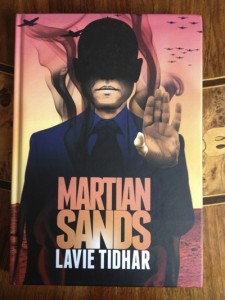 how much do I need to explain? How much would someone out of that culture understand the context? It’s a delicate balance to maintain.
how much do I need to explain? How much would someone out of that culture understand the context? It’s a delicate balance to maintain.
What annoys me about this, for example, I read a review of the English translation of [Spanish anthology] Terra Nova, and instead of discussing the stories, the reviewer was talking about how exotic is to read translations, and their lack of experience with translations, and everything about the reviewer and this exotic experience. And I thought, what about the stories? A writer is a writer wherever they are from. Making them exotic is making them again into this sort of performing monkey. Reviewers like that think they have to talk about translations in a way that it is all about the translation instead of talking about it as just literature.
AS – People want to know how different Israeli science fiction is from English science fiction, don’t they?.
LT- An Israeli academic asked me recently if I though “Osama” is an Israeli novel. I didn’t know what to say. If an Israeli writes a novel, does that make the product an Israeli novel? Does it need to be about Israel to be an Israeli novel? I honestly don’t know the answer to that. The most important thing is that it is still a novel. Another thing is the expectations of the reader. Why would you expect a Peruvian writer to write only about Peruvian reality? North American writers don’t write just about their own country. That can be frustrating. Or to be invited to conventions only to be part of the “non Anglophone writers” panels. Why can’t be talk about other things? We are not some kind of ghetto in literature.
AS – Is it the same experience in this Convention?
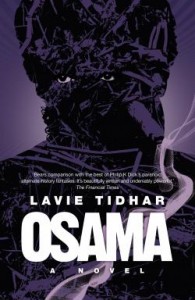 LT – It is different here. I have been part in all kind of panels: Steampunk, fantasy and sf worth reading, Forteana, which was a lot of fun! It’s nice to be treated as somebody that has the same experiences and expectation, that I am just a writer despite of my nationality.
LT – It is different here. I have been part in all kind of panels: Steampunk, fantasy and sf worth reading, Forteana, which was a lot of fun! It’s nice to be treated as somebody that has the same experiences and expectation, that I am just a writer despite of my nationality.
AS – So, why do you think all of these issues are present in the Anglophone science fiction literary world?
LT – Well, as paradoxical as it is, there’s a lot of conservatism in science fiction. I think, you know, in a way it was easier to become successful before the 1990s, before the internet. The whole industry has changed so much. So the people that came up when it was – when the system was really geared towards them – they think if they were successful then, they can talk about the genre now in an authoritarian manner. In a way is a generational thing. There’s much more of a conversation going on right now and I think that’s good. I think even the fact of being a guest of honor here in Sweden and not being from an English language country is proof how things are changing.
AS – You also edit a lot of anthologies with international writers: The Apex Book of World SF that has two volumes now. How do you do for choosing the material?
LT – Well, I choose stories for a whole range of reasons, but I don’t do it for diversity points. I am not exited about these stories because they are by international writers, but because they are stories that I want to read. Some are written in English, some are translations. Translation allows me and other people to read some of these authors. And I want to read them because they’re interesting, they have something to say and it’s worth saying – but at the same time, they’re not something alien or weird, necessarily. They’re just good stories.
AS – You also edit The World SF Blog that does a lot of work promoting science fiction in languages other than English. It has even won last year’s BSFA Award for non-fiction and in 2010 the Last Drink Bird Head Award.
LT – Yes, though I stopped it recently. I did it for four years. For me the greatest benefit of having had this blog, besides the anthologies, is that some editors come to me 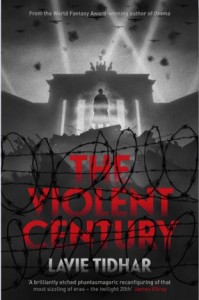 now to ask me to recommend an international writer, because they want to become more diverse. I am really happy that I can do that. I can see something happening in the genre, I can see it becoming more diverse. Of course it is still in a very small way but it is still something.
now to ask me to recommend an international writer, because they want to become more diverse. I am really happy that I can do that. I can see something happening in the genre, I can see it becoming more diverse. Of course it is still in a very small way but it is still something.
AS – What other changes do you see in the genre?
LT- I think perceptions are going to change, that we are going to see younger editors like Alex Dally MacFarlane, for example. She has this great quote that editing is not a passive activity, she doesn’t sit and wait for people to send their stories, she goes out and she looks for them. Which in a way isn’t that how any reader is, really? You go out looking for wonderful things; you don’t wait for them to fall in your lap. So we’ll see, but I’m cautiously hopeful.



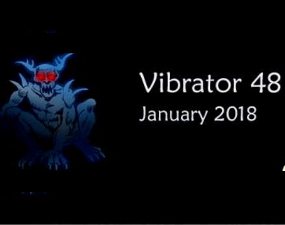








Recent Comments